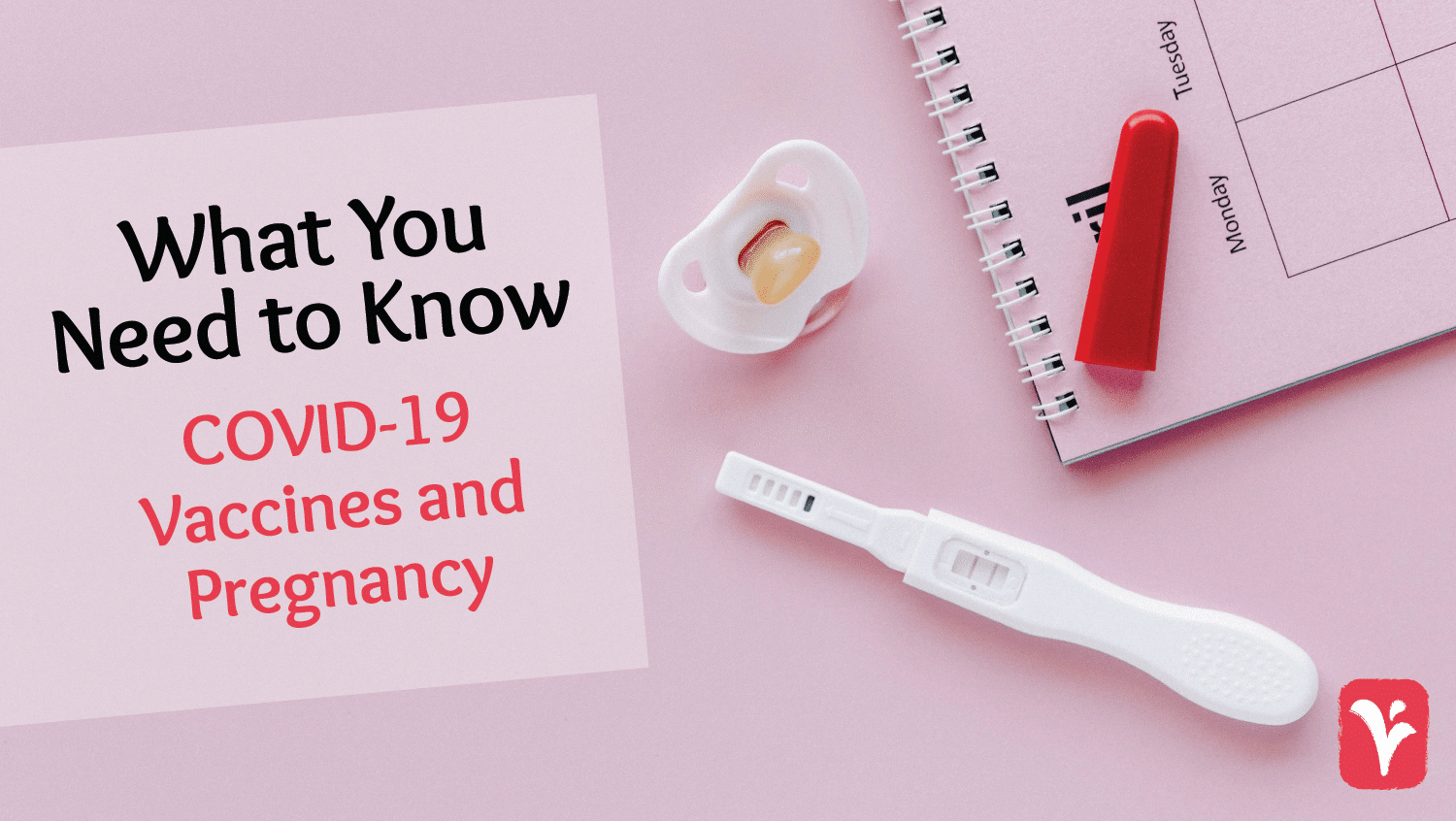The Delta variant now accounts for 99 percent of COVID-19 cases worldwide. With Delta’s contagious profile, public health experts are encouraging people to get vaccinated, because vaccination remains one of the best defenses against the virus. Vulnerable populations, including pregnant women, are especially encouraged to get vaccinated. Here we break down the latest COVID-19 vaccine research and share what pregnant women need to know about the COVID-19 vaccines.
For starters, when pregnant women contract COVID, they are at increased risk for severe illness and outcomes, including hospitalization, stillbirths, and death, according to a study conducted by the Centers for Disease Control and Prevention (CDC). The data, pulled from the Mississippi State Department of Health, found that pregnant women infected with COVID were three times more likely to die than non-pregnant women of reproductive age. These conditions are also exacerbated by having underlying medical conditions, such as chronic diseases, obesity, and diabetes.
According to early data, the Pfizer-BioNTech and Moderna vaccines are safe for use during pregnancy and can reduce the risk of infection. Because the vaccines do not contain the live virus, mRNA vaccines cannot cause infection in pregnant people or their babies. Therefore, the CDC recommends vaccination for all pregnant and lactating women.
However, one unique study found that pregnant women may respond slower to vaccination. That’s because women’s bodies make immunological changes to allow the fetus to grow, increasing their susceptibility to infections and viruses. Because of this, women who get vaccinated do not have the same levels of immunity when compared to non-pregnant people. In order for women to achieve comparable immune responses, receiving a second dose is crucial.
The study was conducted as a means to fill the gap between the lack of research and information on how COVID-19 vaccines impact pregnant women. “We decided to conduct this study to provide real-world data on how pregnant and lactating women respond to the COVID-19 vaccines, since these individuals were left out of the initial vaccine trails,” Andrea Edlow, MD, MSc, a maternal and fetal expert at Massachusetts General Hospitals, wrote in a press release.
Researchers analyzed antibodies from blood samples of 84 pregnant women.They found that after the first COVID-19 vaccination dose, pregnant women had a lower antibody count compared to their non-pregnant participants in the study. However, after the second dose, there was a greater number of antibodies, underscoring the importance of completing the vaccine series. By getting vaccinated, pregnant women not only build antibodies to protect themselves but pass the antibodies on to their babies.
“Taken together, our findings highlight the importance of defining the immunology of pregnancy to inspire the development of vaccines and therapeutics most effective in this unique subpopulation, where optimal immunological responses can protect both mother and baby,” Galit Alter, PhD, group leader at the Ragon Institute of MGH, MIT, and Harvard, said in a press release.
If you are pregnant and have questions about the COVID-19 vaccine, the CDC recommends speaking to a licensed doctor or contacting MotherToBaby, a free non-profit service that provides evidence-based information on safety of medications to pregnant and breastfeeding people. The organization can be reached via:
- Phone | 866-626-6847
- Text | 855-999-3525
- Online Live Chat
Once you have decided to get vaccinated, you can locate a vaccine nearest you by visiting vaccines.gov. Enter your five-digit zip code, enter how far you’re willing to travel (search radius), and your vaccine option preferences. From there, a list of vaccine sites will be listed and an appointment can be made online. As a bonus, you may be eligible for a free ride to your vaccine site.
